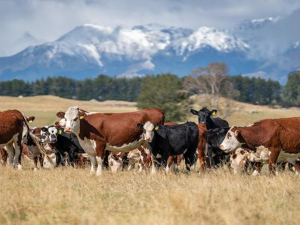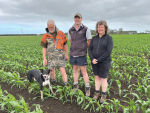New Zealanders must work together and start tackling the complex problem of the biological greenhouse gases from agriculture, says Dr Jan Wright, Parliamentary Commissioner for the Environment.
The Commissioner has released a new report on the issue of agricultural greenhouse gases – methane and nitrous oxide – which form about half of New Zealand’s greenhouse gas emissions.
“In Paris last year the world committed to limiting global warming,” said Dr Wright. “If we are to succeed, the next few decades will be crucial. It’s time to join forces and make some progress.”
Over more than a decade, there have been a number of false starts in dealing with agricultural greenhouse gases, and much controversy over their continuing omission from the Emissions Trading Scheme.
“The debate around agricultural emissions and the ETS has been polarised for too long,” said the Commissioner. “But the ETS is not the only way forward – there are other things that can be done.”
Wright says reducing biological emissions will not be easy, but a common understanding of the science is a good place to start.
“In a way, my report is a reality check,” she said. “There are no silver bullets here, but we need to do what we can to curb these emissions – and we need to start now.”
Immediate opportunities for reducing New Zealand’s emissions lie in new native and plantation forests, and the Commissioner wants to see real progress in this area.
“It might not be the whole solution, but a million hectares of trees would make a big difference – not to mention the added benefits for erosion and water quality.”
The Government has recently set up working groups to look at these issues, and Dr Wright says this is encouraging. But she warns that change is now inevitable.
“Our farmers have shown time and again their ability to adapt to new challenges,” she said. “The world will continue to need food. But in the long term the way in which food is grown, and the types of food grown, will have to change if biological emissions are to be reduced.”
The Commissioner’s report Climate change and agriculture: Understanding the biological greenhouse gases is available here: http://www.pce.parliament.nz/media/1678/climate-change-and-agriculture-web.pdf











